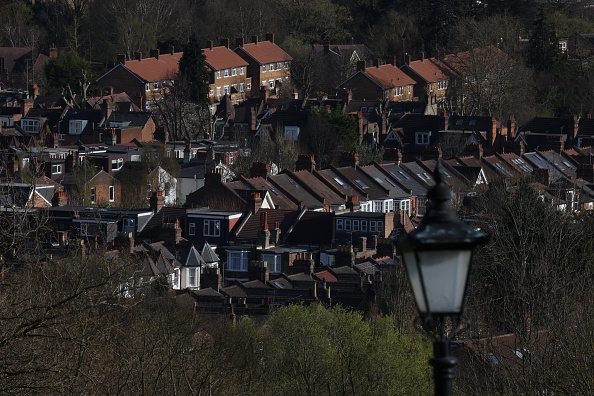Cost of living crisis to throttle UK economic growth, IMF warns
A historic cost of living crunch that is being stoked by Russia’s invasion of Ukraine and strict lockdowns in China will disrupt Britain’s road to recovery, fresh forecasts published today by the world’s economic watchdog revealed.
UK households are set to slash spending in response to rampant inflation eroding their living standards rapidly, choking growth this year and next, the International Monetary Fund (IMF) has warned.
The organisation said UK “consumption is projected to be weaker than expected as inflation erodes real disposable income, while tighter financial conditions are expected to cool investment”.
The UK economy relies on the consumer to generate around 60 per cent of output, illustrating the scale of the hit to growth lower spending will deliver.
The body’s downbeat forecasts underline the scale and pace of the deterioration in the country’s economic position since the turn of the year.
The IMF downgraded its forecasts for UK growth this year to 3.7 per cent from the 4.7 per cent it had pencilled in just three months ago.
Next year, the UK will squeeze out just 1.2 per cent of growth, lower than the initial 2.3 per cent estimate, throwing the country back into the realms of poor expansion that has been its trade mark since the financial crisis.
Inflation is expected to average 7.4 per cent over the course of this year and remain elevated at 5.3 per cent across 2023, much higher than the Bank of England’s two per cent target.
The UK bounced back sharply from the damage inflicted on the economy by the pandemic and restrictions on daily life, posting the best growth rate in the G7 last year. Next year, though, the country will notch the weakest rate of expansion in the group.
Soaring energy and food prices triggered by concerns over supply security as a result of the Kremlin sending troops into Ukraine has helped lift UK inflation to a 30-year high of seven per cent.
Global price pressures are also being driven by Beijing continuing with its zero-Covid tolerance policy, which has plunged key trading hubs such as Shanghai into lockdown and intensified already severe supply chain disruption.
The world economy will grow 0.8 percentage points slower than first thought, notching a 3.6 per cent expansion rate in 2022, the IMF said.
“Even before the war, inflation in many countries had been rising due to supply-demand imbalances and policy support during the pandemic, prompting a tightening of monetary policy,” the IMF added.
The Bank of England has hiked interest rates at each of its last three meetings, the first time it has done so since 1997, sending them back to pre-pandemic levels of 0.75 per cent, in response to the worst inflation rate since the early 1990s.
Economists at JP Morgan are pencilling in four further hikes this year, taking rates to 1.75 per cent by the end of the year and marking the quickest tightening of monetary policy in a calendar since 1988.
“The risk is rising that inflation expectations drift away from central bank inflation targets, prompting a more aggressive tightening response from policymakers,” the IMF added.
Russia-Ukraine war economic impact
The Ukrainian economy will shrink a substantial 35 per cent this year, driven by Russia’s invasion demolishing key infrastructure in the country and restricting its ability to produce goods and services.
Tough sanctions will steer the Russian economy to an 8.5 per cent contraction this year, the IMF said.
